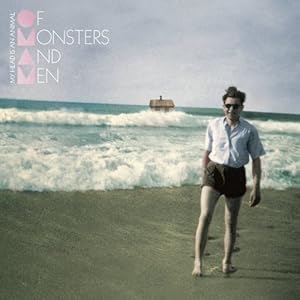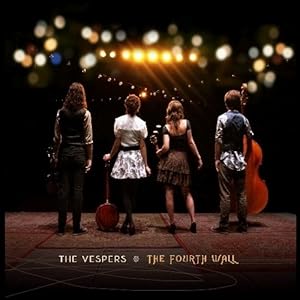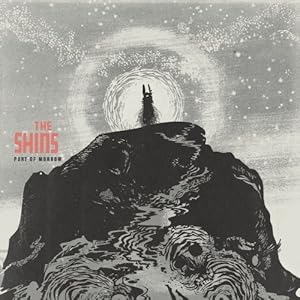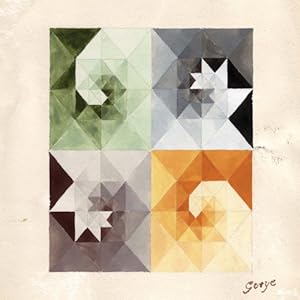From eighth-grade classrooms in New York comes the incredible story of a talking pineapple, the protagonist of an utterly incomprehensible reading-comprehension question on a standardized test. Teachers, students, parents, and administrators alike admitted they had no idea what the question was supposed to be asking. Even Ken Jennings was brought in to discern whether the question was possible, and his answer was a resounding "no." Soon after people from all across the country started mocking it, the pineapple question was stricken from the test. That was a good move, but the controversy has brought to light a systemic weakness of reading-comprehension questions on standardized tests: many of them are wholly subjective, yet they demand test-takers to shoehorn in objective answers.
Math and science questions have right answers. You can't argue that if 2x + 3 = 7 then x does not equal 2. There's no debate that the Earth's mantle lies between its crust and its core. Most English questions have right answers, too. Regardless of context, "stingy" is a pretty good antonym for "generous". But in reading comprehension--and in the larger field of literary criticism--things are not so black and white. Good literary critique is all about formulating an idea then finding evidence from the work to support it. It's why people today can read Crime and Punishment or Moby-Dick and have new discussions about them, interpret them in different ways, find personal meaning in them. If subjective personal meaning and novel interpretation make language education a valid discipline in the first place, then why are we testing proficiency in that discipline with ostensibly objective multiple-choice questions?
I noticed it as an eighth-grader taking these tests. I was fine with questions like "what did this character mean?" or "in what order do these events take place?". Questions that asked me to interpret how a character was feeling or his motivation for doing something always felt a little hazy. But by far the worst were the questions that asked me to straight-up speculate. Talking Pineapple has one of the worst I've ever seen: "What would have happened if the animals had decided to cheer for the hare?" We don't know for sure, because that's not what happened. The author, the test-writer, and the test-taker might all have very different answers to that question, none of which would necessarily be "wrong" as long as their answer made sense based on the rest of the story.
But the "what would have happened" question asks the test-taker to give an objective answer based on a hypothetical situation. There is no way that any answer to this question should ever be scored as "correct" as x = 2, or as "incorrect" as x = 5. Yet that's exactly what multiple-choice questions on reading-comprehension tests do. And although Talking Pineapple gave one of the most public, and egregious, examples of this forced objectivity, it's been a mainstay of standardized tests for decades.
It seems obvious that in a field where reasoned argument is a critical skill, we should be testing students' abilities to make reasoned arguments. A binary, "either you're entirely correct, or you're entirely incorrect" bubble on a Scantron sheet doesn't test that ability at all. (In the worst case, it tests the ability to guess an answer at random out of four or five.) So why not allow test-takers to make their arguments? What would be wrong with asking "What would have happened if the animals had decided to cheer for the hare? Pick an answer A-D and explain your answer." Then, don't score the answer at all, but score how well that answer was supported from textual evidence.
Saturday, April 21, 2012
Saturday, April 14, 2012
Yogurt Chronicle: Herbs and Spices Edition
I started my latest round of yogurt flavoring with nutmeg, a suggestion from Steph. It's her new favorite spice, and I realized that outside of October, November, and my mom's ricotta-cheese pasta filling, I don't encounter nutmeg much at all. For a cup of yogurt, I went with about a teaspoon of sugar and a dusting of nutmeg, just enough for a slight brown swirl to show up when I stirred it. It's tough to see in the picture, but nutmeg isn't one of those spices where you have to see it to know it's there. This one turned out really well, possibly my favorite batch so far. The nutmeg was subtle, present but not overpowering, and it's given me about half a dozen other spice-yogurt ideas.
Next up was another Steph suggestion: chai yogurt. As anyone familiar with the authentic stuff will adamantly tell you, real chai contains five ingredients: water, milk, tea, cardamom, and sugar. Yogurt starts from milk anyway, so it seemed a natural fit. I think I've found my sweetener:yogurt ratio, so I added 2 teaspoons of sugar to two cups of yogurt, then I ground up four cardamom pods in my mortar and pestle and threw those in too. The toughest ingredient to add turned out to be the tea. I put in a teaspoon of loose-leaf tea, and it just sort of sat there, not mixing into the yogurt well at all (those are the large brown flecks throughout). So I ground up another teaspoon worth and added it too, and it mixed a little better that time. Chai yogurt didn't turn out quite as successful as I'd hoped: the crunch from the whole tea leaves provided a weird texture without imparting much flavor, and the cardamom was a little overpowering. I'd try this again but cut the cardamom in half, and maybe brew the tea leaves first and mix them into the yogurt when they were still warm to try to "brew" the yogurt a bit.
The leg of lamb I'd cooked on Easter was the unlikely source of inspiration for this one. The combination of fresh rosemary and mint was so delicious on the lamb, why wouldn't it work in yogurt? I added two teaspoons of sugar like usual. Then, I chopped up some fresh rosemary (maybe a teaspoon) from my balcony garden and some fresh mint (maybe two teaspoons) from my refrigerator garden and stirred it all together. About the only thing that didn't work was a bit of unwanted texture from the rosemary: while all the flavors transitioned from lamb to yogurt surprisingly well, every spoonful had just a little crunch, which is still something I don't know that I need in my yogurt.
Next up was another Steph suggestion: chai yogurt. As anyone familiar with the authentic stuff will adamantly tell you, real chai contains five ingredients: water, milk, tea, cardamom, and sugar. Yogurt starts from milk anyway, so it seemed a natural fit. I think I've found my sweetener:yogurt ratio, so I added 2 teaspoons of sugar to two cups of yogurt, then I ground up four cardamom pods in my mortar and pestle and threw those in too. The toughest ingredient to add turned out to be the tea. I put in a teaspoon of loose-leaf tea, and it just sort of sat there, not mixing into the yogurt well at all (those are the large brown flecks throughout). So I ground up another teaspoon worth and added it too, and it mixed a little better that time. Chai yogurt didn't turn out quite as successful as I'd hoped: the crunch from the whole tea leaves provided a weird texture without imparting much flavor, and the cardamom was a little overpowering. I'd try this again but cut the cardamom in half, and maybe brew the tea leaves first and mix them into the yogurt when they were still warm to try to "brew" the yogurt a bit.
The leg of lamb I'd cooked on Easter was the unlikely source of inspiration for this one. The combination of fresh rosemary and mint was so delicious on the lamb, why wouldn't it work in yogurt? I added two teaspoons of sugar like usual. Then, I chopped up some fresh rosemary (maybe a teaspoon) from my balcony garden and some fresh mint (maybe two teaspoons) from my refrigerator garden and stirred it all together. About the only thing that didn't work was a bit of unwanted texture from the rosemary: while all the flavors transitioned from lamb to yogurt surprisingly well, every spoonful had just a little crunch, which is still something I don't know that I need in my yogurt.
Tuesday, April 03, 2012
3-Sentence Reviews: Music from Spring 2012
Big surprise here: the US release of Of Monsters and Men's
album My Head is an Animal is still good.
It features a couple extra songs added to its Icelandic release, with
"Mountain Sound" in particular making this already amazing album even
better than it was before. What scores
the band the most points, though, is that they're awesome people, taking time
to mingle with their fans after a concert and having a blast playing through
their first US tour.
For a band whose first album had hints of breaking through into something truly great, it's a little disappointing to hear The Vespers' sophomore album The Fourth Wall be merely different rather than brilliant. It's not necessarily an improvement on Tell Your Mama, more of a stylistic shift to encompass more overtly Christian themes and embrace its Deep-South spiritual roots, with the few infectiously sunny up-tempo pieces seeming further out of place the more you listen to the album. Sooner or later, The Vespers will need to pick a stylistic direction and stay with it--or, better yet, release multiple albums in multiple styles--but it's tough not to like the quartet's ambition in drawing from so many genres, and their mastery of vocal harmony is among the best there is.
For a band whose first album had hints of breaking through into something truly great, it's a little disappointing to hear The Vespers' sophomore album The Fourth Wall be merely different rather than brilliant. It's not necessarily an improvement on Tell Your Mama, more of a stylistic shift to encompass more overtly Christian themes and embrace its Deep-South spiritual roots, with the few infectiously sunny up-tempo pieces seeming further out of place the more you listen to the album. Sooner or later, The Vespers will need to pick a stylistic direction and stay with it--or, better yet, release multiple albums in multiple styles--but it's tough not to like the quartet's ambition in drawing from so many genres, and their mastery of vocal harmony is among the best there is.
Every Shins album so far, including Port of Morrow, has seen
increasing levels of production: Oh, Inverted World suffered for its low
production and lo-fi-ness in general; Chutes Too Narrow had more production and
was a better album because of it; Wincing the Night Away really hit a sweet
spot and was easily the greatest thing the Shins have done so far. The term "overproduced" is enough
overused that it's basically meaningless, but the fresh, indie-pop hooks of
Wincing have largely been replaced by a smooth gloss that doesn't offend but
doesn't easily excite either. "For
A Fool" and "It's Only Life" are entirely forgettable,
medicore-at-best attempts at something mid-tempo; fortunately "The Rifle's
Spiral" and "No Way Down" keep some of the old pop brilliance,
and "September" is among the most heartfelt and lovely things James
Mercer has come up with.
Making Mirrors, by an artist who calls himself Gotye and
pronounces it "go-tee-ay," is one of those odd albums that somehow
decided to choose its very worst song for its breakout radio single. Like probably a majority of listeners
familiar with him, I was first introduced to Gotye by having "Somebody
That I Used to Know" forced on me by FM radio (Live 105.3, I'm looking at
you), and from it, I erroneously concluded that Gotye was mumbly and
boring. It's not as standout an album as
some would proclaim, filled with bizarre auditory non sequiturs and containing
an unfortunate miscue in the form of an autotuned reggae track called
"State of the Art," but "I Feel Better" and "In Your
Light" take all the best elements of 60s-70s Motown, funk, and even
Southern rock to turn out music I actually want to listen to.
This month's "late to the party" entry comes from
Mr. Edward Sharpe & the Magnetic Zeros, which given my general
enthusiasm for all things indie folk is about as egregious an omission as Fleet
Foxes were a few months ago. It's
actually not as folky as it could have been given its standout single
"Home" (they got this one right; except for the irritating
spoken-word passage, it's by far the best track on the album). A liberal application of horn section and the
occasional harmonica works really well; some unfortunate vocal quirks (spoken
passages, changes in register, deliberate not-quite-on-the-beat singing) are
nowhere near as clever as they think they are; and the constant genre experiments
might either be refreshing or exhausting depending on your mood.
Subscribe to:
Comments (Atom)








